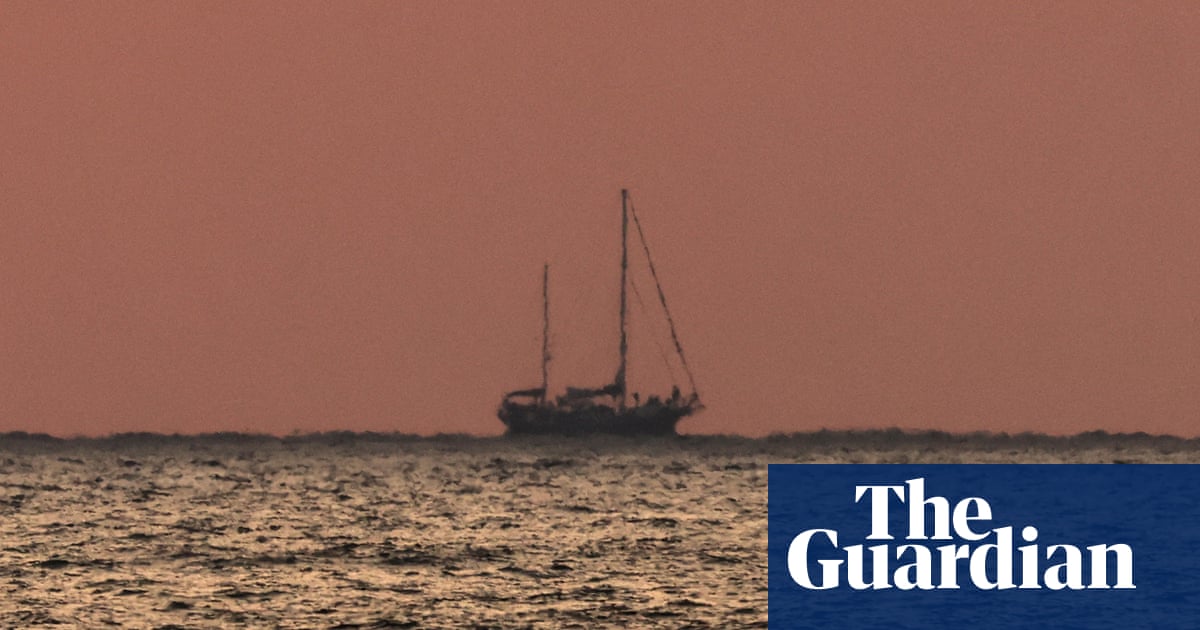Swedish climate campaigner Greta Thunberg and other activists whose Gaza-bound aid shipwas intercepted by Israeli naval forceshave been taken to a Tel Aviv airport for deportation, Israel said on Tuesday.
The activist groupdeparted Italy on 1 June aboard the Madleencarrying a symbolic amount of food and supplies for Gaza, whose entire population the UN has warned is at risk of famine. Israeli forces intercepted the boat in international waters on Monday and towed it to the port of Ashdod.
“The passengers of the ‘Selfie Yacht’ arrived at Ben Gurion airport to depart fromIsraeland return to their home countries,” the Israeli foreign ministry said on X. “Those who refuse to sign deportation documents and leave Israel will be brought before a judicial authority.”
The Freedom Flotilla Coalition (FFC), the group operating the Madleen, said all 12 campaigners were “being processed and transferred into the custody of Israeli authorities”.
“They may be permitted to fly out of Tel Aviv as early as tonight,” it said on social media.
Video released earlier by the group showed the activists with their hands up as Israeli forces boarded the vessel, with one of them saying nobody was injured.
The Madleen was intercepted about 185km west of the coast ofGaza, according to coordinates from the FFC.
French president Emmanuel Macron requested that the six French nationals aboard the boat “be allowed to return to France as soon as possible”, a presidential official said.
Adalah, an Israeli NGO offering legal support for the country’s Arab minority, said the activists on board the Madleen had requested its services, and that the group was likely to be taken to a detention centre before being deported.
Turkey condemned the interception as a “heinous attack” and Iran denounced it as “a form of piracy” in international waters.
In May, another Freedom Flotilla ship, the Conscience, wasdamaged in international waters off Maltaas it headed to Gaza, with the activists saying they suspected an Israeli drone attack.
On Sunday, Israeli defence minister Israel Katz said the naval blockade on Gaza, in place for years before the Israel-Hamas war, was needed to prevent Palestinian militants from importing weapons.
Israel is facing mounting pressure to allow more aid into Gaza to alleviate widespread shortages of food and basic supplies.
In what organisers called a “symbolic act”, hundreds of people launched a land convoy on Monday from Tunisia with the aim of reaching Gaza.
Organisers of the nine-bus convoy say they are not bringing aid into Gaza, but rather aiming to carry out a “symbolic act” by breaking the blockade on the territory. The convoy is set to pass through Libya and Egypt, although Cairo has yet to provide passage permits, an activist on the convoy said.
Israel recently allowed some deliveries to resume after barring them for more than two months and began working with the newly formed, US-backed Gaza Humanitarian Foundation (GHF).
But humanitarian agencies have criticised the GHF, and the United Nations refuses to work with it, citing concerns over its practices and neutrality.
Dozens of people have beenkilled near GHF distribution points since late May, according to Gaza’s civil defence agency.
